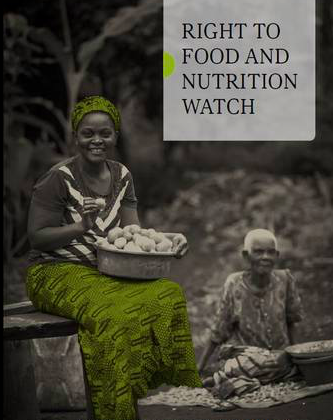Right to Food and Nutrition Watch 2015: Peoples’ nutrition is not a business
The Right to Food and Nutrition Watch Consortium, which includes several ESCR-Net Members, has published its annual human rights review of the status of nutrition and the impact of business operations on communities across the world.

The Watch 2015 is divided into two main sections. The thematic section looks at the issue of nutrition from a human rights perspective, bringing the impact of business operations into sharp focus. It also touches upon the future UN treaty on human rights, transnational corporations (TNCs) and other business enterprises; the ongoing negotiations on food security at the WTO; and trade and investment negotiations within the framework of the TTIP, CETA and TPP, which are considered to be ‘hot’ policy processes this year. The second section of the Watch, organized by geographical region, features relevant developments around the right to food and nutrition at local and national levels, including how social movements and civil society are addressing the challenges they face.
The report provides relevant background regarding the status of nutrition, describing how the concept of nutrition has been reduced to the mere measurement of nutrients in food and human bodies, with a disregard for the socio-economic and cultural context in which human beings feed themselves. As a result, malnutrition is narrowly defined as a lack of nutrients that can be rectified with external technical interventions, such as industrialized food supplements, nutrient pills and powders.
Policy responses to overcome malnutrition have thus ended up mostly revolving around programs run, or heavily in influenced by, the corporate sector, leaving aside the promotion of locally produced diversified diets and stripping people—with a disproportionate impact on women—of their capability to protect family nutrition and human rights. There is an urgent need to re-visit approaches to nutrition and promote alternatives that will ensure the right to adequate food and nutrition for all, within the life cycle approach, intimately dependent on sustainable local food systems, healthy adequate living and care conditions, with people at the center.
It is the hope of the Right to Food and Nutrition Watch Consortium that the information presented in the Watch 2015 will provide readers with insight into, and awareness of, the numerous achievements in implementing the right to adequate food and nutrition for all, the unfortunate setbacks along the way, and the substantial challenges that still lie ahead. Ultimately, this organization hopes that this increased awareness will strengthen and support their global movement for attaining nutritional well-being, as well as the realization of the right to food for all.
To read this report, click here.
